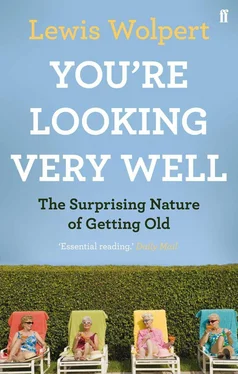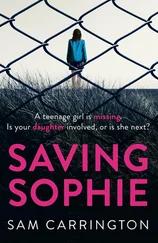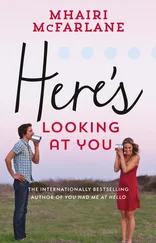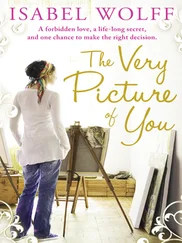Nevertheless there are several organisations devoted to extending lifespan and even superlongevity. Leon Kass apparently believes that if our bodies don’t grow old we will become even more fearful of death. He also thinks we will feel unhinged and lack the sense of purpose that supposedly comes with growing old. Superlongevity would make time of no consequence and this could have bad consequences due to the increase in population size. The emerging picture of perhaps many hundreds, or even thousands, of small effects and tissue-specific damage provides a sobering challenge for those aiming to engineer reduced senescence. Controlling behavioural and environmental exposures to reduce cell damage may be a more realistic priority, as the great majority of people are likely to have large numbers of genetic vulnerabilities for one or another disease not related to ageing. A £ 5 million programme of bioengineering has been proposed to do research to find solutions to the problems associated with ageing of the body. Research will focus on joints, spine, teeth, heart and circulation. This seems more sensible than trying to develop safe and effective genetic engineering to alter the thousands of small damaged functions in our cells.
In Shakespeare’s All’s Well that Ends Well the king is suffering from physical disability related to old age. When Helena offers to cure him, which she later does with a potion from her doctor father, the king responds with cautionary words:
We thank you, maiden;
But may not be so credulous of cure,
When our most learned doctors leave us and
The congregated college have concluded
That labouring art can never ransom nature
From her inaidible estate.
‘To get back my youth I would do anything in the world, except take exercise, get up early, or be respectable’
— Oscar Wilde
If we cannot be immortal, can at least our youthful looks be maintained? Almost everyone wants to look reasonably young while still living to a respectable old age without serious disabilities. Youth’s attraction is no mystery: evolution wants us to reproduce and so has selected us to find young people attractive, since they are the best reproducers. The same principle has resulted in us finding old faces unattractive. What could we do to avoid changes in our appearance with age? Having the right genes is a good beginning, as is keeping fit and active, and eating the right foods—staying slim is one of the key factors to looking young, but it does not hide wrinkles.
Efforts to hide and prevent ageing are far from being a modern obsession. In Ancient Egypt cosmetics were applied to the face and eyes, and cosmetic implements, particularly eye-makeup palettes, have been discovered in the earliest graves. Honey as well as various herbs and plants were used in an attempt to devise anti-ageing treatments. The aloe plant was commonly used as an anti-wrinkle treatment and is still with us today. Cleopatra is known to have used lactic acid in order to peel her skin, believing it made her appear more beautiful. The arid desert climate of Egypt led to the widespread use of body oils as moisturisers. It is believed that all classes of Egyptian society were concerned with their appearance, both men and women.
This pattern is repeated throughout the ancient world. As now, the focus was on the youthful beauty of women rather than men. The Roman poet Ovid despaired of time’s encroachments: ‘The years will wear these charming features; this forehead, time withered, will be crossed with wrinkles; this beauty will become the prey of the pitiless old age which is creeping up silently step by step.’ Other writers saw the comedy as well as the pathos of the situation. ‘The Man and His Two Mistresses’ is one of Aesop’s Fables , written around 600 BC:
A man of middle age, whose hair was turning grey, had two mistresses, an old woman and a young one. The elder of the two didn’t like having a lover who looked so much younger than herself; so, whenever he came to see her, she used to pull the dark hairs out of his head to make him look old. The younger, on the other hand, didn’t like him to look so much older than herself, and took every opportunity of pulling out the grey hairs, to make him look young. Between them, they left not a hair in his head, and he became perfectly bald.
In a recent survey many men and women said that they are, will be, or were, at their physical peak not during their youth but during their early middle years around the age of 40. Those aged 65 and over said 46 was their personal best age. But in terms of appearance, youth remains the golden age. Marie Helvin, at 54 still a supermodel, said: ‘Please shoot me if I’m doing this in my 80s. Anyway, one day I won’t be able to. My mother always said that Japanese women look youthful for years and then one morning they wake up and they’ve aged like 100 years. And she’s right. It happened to her when she was 79.’
Celebrities and many others have fallen prey to the cloned-youth look. The American anti-ageing magazine New Beauty offers articles on how to get flawless feet, and lists the top ten wrinkle reducers. However, the treatment needed to achieve this youth has, it is claimed, made many women look like waxwork escapees from Madame Tussaud’s. Many have had their faces injected with a filler to remove the creases while others have plastic surgery. In a survey 20 per cent of men said they thought that cosmetic surgery for their wives could save their marriage; it seems no one asked the women whether they would like the pot bellies of their husbands reduced.
Currently the global anti-ageing market for cosmetic products and treatment is estimated to be worth approximately $57 billion, a figure that is expected to grow at breakneck speed in coming years. In the UK cosmetic surgery has tripled in the last five years. Britons are spending nearly £ 500 million a year on cosmetic procedures, said Which? magazine, more than any other European country. A total of some £ 673 million a year is spent on skin care, and these figures are dwarfed by figures from the US. Of course not all this money is spent by the old, but anti-ageing products are the largest growing sector. An article in Time magazine in early 2009 introduced the concept of ‘amortality’ when referring to the current attempts to avoid ageing and achieve a leap in life expectancy. Age-appropriate behaviour, it claimed, will be relegated to the past, like black-and-white television. Amortals do not dread extinction—they deny it.
Surveys exploring attitudes towards ageing, beauty and cosmetic surgery can yield varying results. In one survey of some 2,000 Americans aged over 18, as well as 500 who have had cosmetic surgery, almost all of those interviewed were satisfied with the way they look for their age, and over half felt that inner beauty is more important than physical appearance—this was particularly true for the old. Just one in three said physical beauty counts most. More than half believed that men and women age gracefully, and only a quarter of women felt that maintaining an attractive physical appearance was important for them. Most of the women were satisfied with their appearance. After 45, women were more interested in looking good for their age than in trying to look a different age. Agony Aunt Virginia Ironside has commented, ‘I want to look good at my age, but I also want to look old enough for people to open heavy doors for me.’ She also very much appreciates being offered a seat on a crowded bus.
But in another survey, almost three quarters of women cited body shape as a ‘major concern’. Meanwhile, men are also taking more time over their appearance. About 20 per cent said they would consider getting cosmetic surgery in the future, while about 22 per cent were unsure if they would. Those under the age of 40 were nearly twice as likely to consider having a procedure in the future. A study by Which? magazine found that Botox treatments are seen as a desirable Christmas present by 50 per cent of people aged between 16 and 24, and 45 per cent of those aged 55 to 64. A survey of schoolchildren found that 18 per cent of all boys and 25 per cent of all girls declined to imagine any form of enhancement because they saw it as unnatural or simply unnecessary. One girl commented, ‘I wouldn’t want an upgrade because I wouldn’t want to be different. I like being who I am.’
Читать дальше












